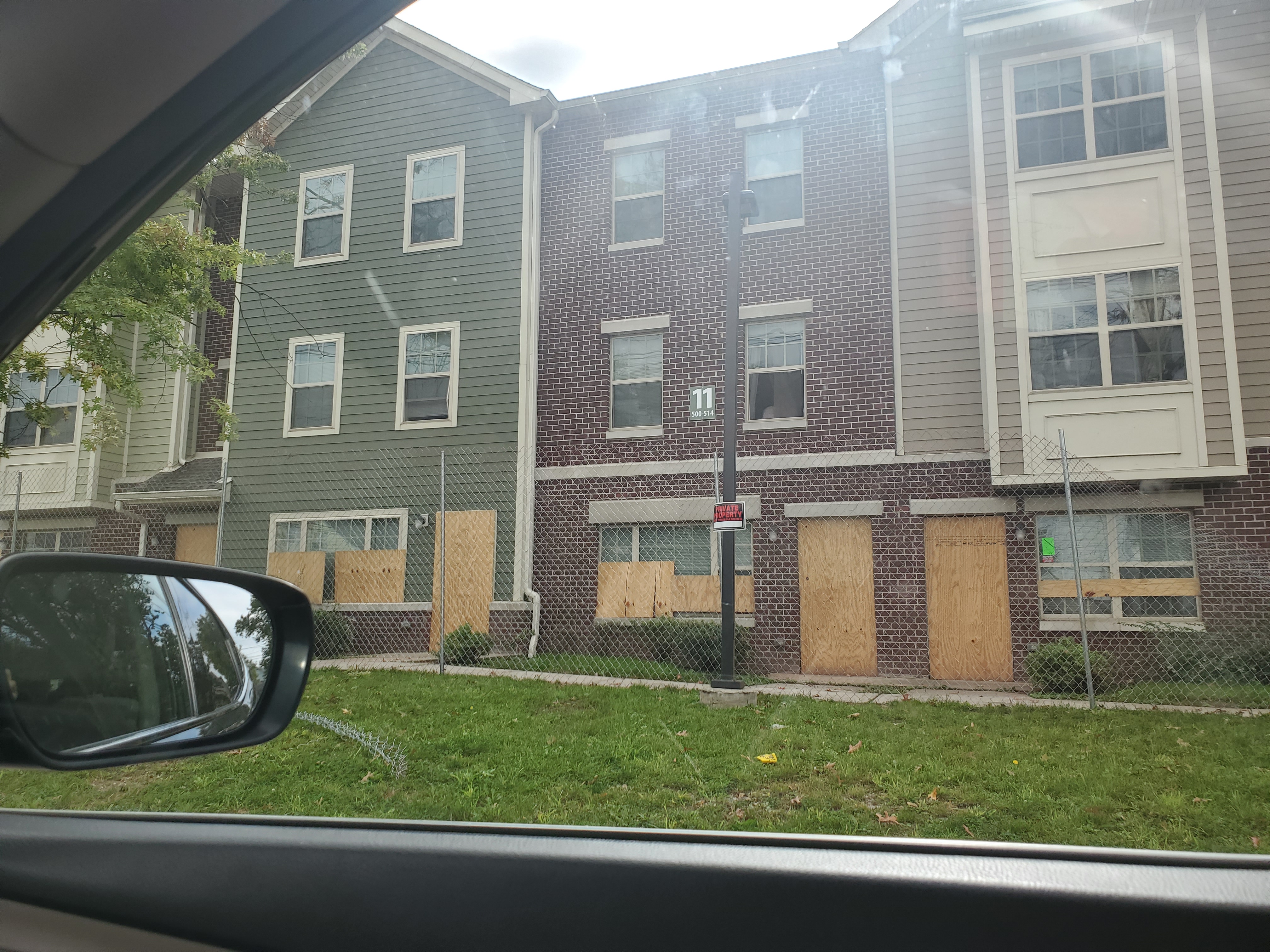By L.K. Mata Cuevas | Published by November 15, 2021
I’ve always joked about how close I live to campus if not the closest commute then perhaps one of the closest. Having the university so near to what could potentially be my family’s home was a decisive factor when moving to the Parker Walk townhouse and apartment complex, at Riverside Drive in Elizabeth a few years ago.

Photo credit: Lenny Mata
Usually, when people ask me where I live, I always say that I live across the street. Regardless, I ended up driving to Kean on my first day for what was supposed to be a celebratory return to in-person classes but instead transformed into the Ida Storm day.
On the night of September 1, I was driving home from a photography class when I soon understood the rain was something else and it wasn’t going to stop anytime soon. Yet, I never expected it was going to lead to flooding, displacement of whole families, and even death for some.
The NJ.gov website states that usually “the average annual precipitation ranges from 51 inches in north-central parts of the state,” which means 4.25 inches per month. Over a period of 24 hours, from Wednesday to Thursday, a total of 8.44 inches of rainfall was recorded, according to the National Weather Service.
For me, it was more than that and still feels like so much more, as it was for many of my neighbors.
I am not exactly sure when my car went from parked in the complex parking lot to floating in the parking lot. The rainwater came so fast, so unstoppable that it damaged virtually all of the first floors units. Upper-level neighbors had to start welcoming families into their homes to help them avoid putting their lives in danger.
After spending the night, alert and stressed to the rising water, we “woke up” to the news that the house we’ve been living in for nearly four years was no longer our home. Damage in the sewage and air system had made it impossible to stay and the manager gave no estimated date to return to our homes.
In an interview for NJ.com, Elizabeth Mayor Christian Bollwage explained that it was going to take a lot of time to repair.
“Those units will not be reoccupied for a long time – at least a year,” Bollwage is quoted as saying.
That very same day most of the people at the complex were placed by the city of Elizabeth in local hotels, churches, or schools. These were options that my family and I did not have access to, between all the miscommunication and lack of information from our manager, we started spending our nights here and there, without really having a place to go.
Days in that situation went by without any news, not even a return call from the property management. One day, while driving to a friend’s house who had to allow me to spend the night, I found out that the front door to the inside of my house had been boarded up with plywood.
Without receiving any explanation, all of our belongings were trapped inside and no one knew when we would have access again. From that point on, the emotional distress just grew fed further by letters saying we were still being responsible for paying rent.
“Yes. Your lease is still in effect.” reads the letter. “You are still required to pay for your rent.”
Lisa Matisca, a four-year tenant and neighbor, was incensed.
“They told us in a statement on a letter that we were still responsible for paying rent, regardless that all utilities were shut off and that we could not return to our apartments,” she said.

Now imagine paying rent for a place that you are neither living in nor allowed to get into for your belongings? Even more, imagine that the only way you can get out of that evil contract is by abandoning all of your family’s material and emotional effects? Imagine not having access to someone from the management company or a person of authority willing to discuss the terms. No one was providing information about what else to do.
What seemed just like a bizarre idea — pay rent but have nowhere to live — became a cruel reality for me, my family, and all of the people living in the townhouse and apartment complex. I can’t say whether other tenants are still sending their payments, but for me personally, it was something unfair, and I wasn’t willing to oblige for that.
Within very few weeks the once vibrant complex became a ghost town, all fenced-up, with a police patrol, and strict orders of “no trespassing.” — a word that, according to the Merriam-Webster dictionary, means “to enter the owner’s land or property without permission”.
On September 2, I woke up, still a Kean University student, yes. But also a displaced person as a consequence of the Ida storm. I can’t make jokes anymore about crossing the street, but I can’t help missing my corny joke, my things, and my home.

You must be logged in to post a comment.